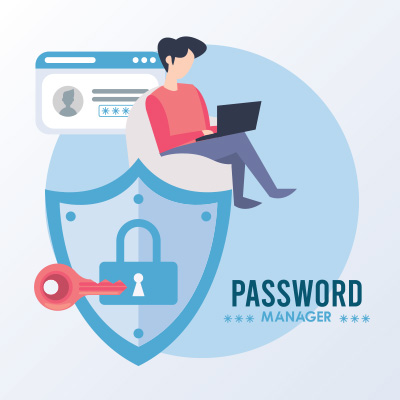The importance of databases in the context of an average business might be understated. They serve as an indispensable tool for ensuring smooth operations. An efficient Database Management System (DBMS) is actually more important than you may realize. This month, we look at the DBMS and its pivotal role in elevating your business operations.
You might have noticed that business insurance companies are starting to show an interest in how you are protecting your technology and data. If your org has been in touch with your insurance provider regarding modifying or renewing your business insurance, you were likely handed a lengthy questionnaire about your cybersecurity. Let’s take a look together to help you make informed decisions on how to handle your IT and how to prevent your insurance costs from skyrocketing.
Technology is becoming a standard tool used by nearly every organization. Learning how to adjust and do things better allows any organization to maximize productivity. In doing so, it creates the environment needed to become a more successful business. But, can innovation actually be a productivity killer? This month, we look at how innovating may not always be the best way to get your business to go where you want it to go.
Passwords are the keys to digital access, but they’re often not treated as keys; meaning they aren’t always protected by their users. Unfortunately, people don’t always do everything they can to protect their passwords and there are a lot more scammers out there than pickpockets. Effective password management is crucial for any business. It works to maintain the security of online accounts and sensitive information. Here are five ways to control and enhance your password management. Use Strong and Unique Passwords Create strong passwords that include a mix of uppercase and lowercase letters, numbers, and special characters. You’ll want to avoid using easily guessable information such as birthdays, names, or common words while also making sure that each of your passwords is unique for different accounts to prevent a security breach in one account from affecting others. Implement a Password Manager The password manager is a great tool to let users generate, store, and organize complex passwords for each of their accounts. The best thing about them is that they promote the use of complex and unique passwords for each site, reducing the temptation to reuse passwords across multiple platforms, and improving data security. Additionally, many password managers also offer features like secure password sharing and auditing tools to ensure passwords meet certain security criteria. Enable Multi-Factor Authentication IT administrators and users will want to enable multi-factor authentication (MFA) whenever possible. This option adds an extra layer of security by requiring a second form of verification, such as a code sent to your mobile device or generated by an app. MFA ensures that even if a password is thought to be compromised, the unauthorized party wouldn’t be able to access the digital resources beyond the MFA-protected account Regularly Update and Change Passwords Passwords are the major tool used to protect organizational and personal data. In order to do that, you have to make sure they don’t get stale. Set a schedule to update your passwords regularly, especially for critical accounts. If you find out a service you use has been compromised, you need to make sure to change the password immediately. Educate Yourself and Stay Informed It’s a good practice to stay informed about the latest cybersecurity threats such as advancements to phishing attacks or other scams that are going around. Everyone should be cautious of malicious websites and questionable correspondence that may try to trick you into revealing your login credentials or getting you to interact with files that deploy malicious code. Remember, the goal is to create a robust defense against unauthorized access. By working toward more secure strategies, your organization can be much more secure. If you would like to learn more about how White Mountain IT Services can augment your organization’s data security efforts, contact us today at (603) 889-0800.
If you are old enough to remember when antivirus (like most computer software) came in a great big textbook-sized box at the store, then you probably remember a time when that was the only protection you really needed. Today, there are countless free versions of antivirus out there. Let’s talk about how much protection these actually bring, and when and where they might be a good fit.







